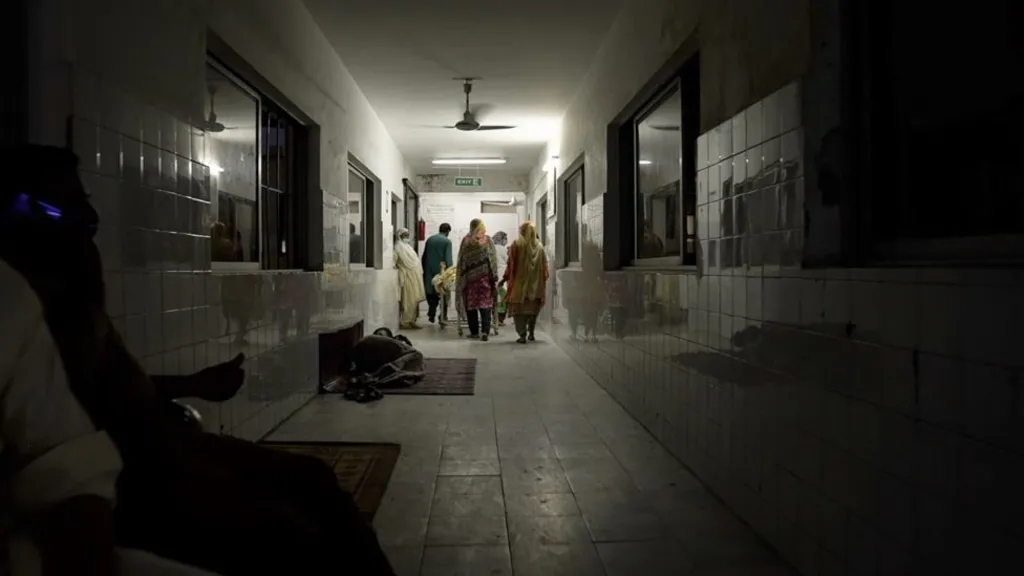In the wake of the brutal rape and murder of a trainee doctor in India, a tragic spotlight has been cast on the safety of female health professionals across neighboring countries, including Pakistan. It’s not just about long shifts, heavy workloads, or managing the life-and-death situations that come with the job. It’s about staying safe at work—something that shouldn’t even be a question but tragically is.
Thank you for reading this post, don’t forget to subscribe!Across Pakistan, female doctors and nurses are voicing their fears, saying that they are regularly harassed, threatened, and even physically attacked by colleagues, patients, and visitors alike. Yet, many suffer in silence, too scared to report these crimes. For those who do muster the courage, justice often feels like a distant dream, clouded by doubt, disbelief, and a system that seems to protect the predators instead of the victims.
A Crisis Hidden in Plain Sight
When speaking to the BBC, more than a dozen female doctors revealed their worries about safety, but almost all of them requested anonymity. Why? Because in a society that places immense value on a woman’s “honor,” coming forward could cost them their jobs, reputations, and personal relationships.
Take the story of Dr. Nusrat (not her real name), who recently consoled a young doctor in tears. While using the hospital bathroom, she had been secretly filmed by a male doctor, who then blackmailed her with the footage. The young woman was too terrified to file a complaint, afraid the video would leak and reach her family. She’s not alone—Dr. Nusrat knew of at least three other women who had been secretly filmed. Although the video was eventually deleted after intervention from a police officer, the emotional scars remain. The problem? Nothing beyond covering up the hole where the camera was hidden was done to prevent this from happening again.

Harassment in Hospitals—A Chillingly Common Tale
Dr. Aamna (again, not her real name) worked as a resident medical officer five years ago, but she still remembers the daily harassment by a senior male doctor. “He would lean over my desk, make inappropriate comments, and try to touch me,” she recalled. Filing a formal complaint did little good—she was met with apathy. The response was essentially, “What proof do you have?” and “Nothing will change.”
This isn’t just an isolated incident. According to the US National Institutes of Health, up to 95% of nurses in Pakistan have faced some form of workplace violence, from verbal abuse to physical assaults, at least once in their careers. The Pakistan Journal of Medicine and Dentistry adds that sexual harassment is rampant too, with 27% of nurses in Lahore having experienced sexual violence, and 52% of female doctors in the northwestern province of Khyber Pakhtunkhwa reporting sexual harassment.
Read more: How Cat Memes Went Viral Over 100 Years Ago
A Broken System
There’s no denying that the healthcare system in Pakistan is a chaotic mess of underfunded hospitals, lack of resources, and inadequate staffing. But when the people supposed to protect patients—the doctors and nurses—are themselves unsafe, how do you expect them to do their job?
Dr. Summaya Tariq Syed, Karachi’s chief police surgeon, has been fighting this battle for over 25 years. She describes her career as one long struggle against violence and betrayal. In one instance, her colleagues locked her in a room, demanding she change a post-mortem report. When she refused, nothing happened to the perpetrators. These experiences mirror what many female health professionals in Pakistan face: an environment where reporting abuse often leads nowhere.
The hospital “committees” tasked with investigating harassment claims often include the very people accused of harassment. Who would trust a system like that? Is it any wonder so many women choose to stay silent rather than report abuse and risk further humiliation or career ruin?
The Grim Reality for Pakistan’s Nurses and Doctors
Let’s be clear: hospitals in Pakistan are not secure. Many lack proper security measures, with attackers often waltzing in unchecked. Nurse Elizabeth Thomas (not her real name) described the terrifying reality of drunk patients harassing her and her colleagues. “We feel terrified, unsure whether to treat the man or protect ourselves,” she said. Security guards are often nonexistent or simply ineffective.
The lack of basic facilities is equally shocking. Dr. Saadia (also a pseudonym) described her experience during a 30-hour shift when she couldn’t even find a room to rest in, forcing her to take brief naps in a colleague’s car. Bathrooms were non-existent in some hospital blocks, meaning female doctors often had to hold it in during marathon shifts, even during menstruation.
The Impact of India’s Trainee Doctor Case
The murder of the Indian trainee doctor has rattled the female medical community in Pakistan. Many have changed their routines—avoiding dark places, sticking to crowded areas, and using elevators instead of staircases. Yet, no matter how many precautions they take, the underlying problem persists. One question looms large in their minds: Will I be next?
Elizabeth Thomas, a nurse with a seven-year-old daughter, has been shaken to her core. Her daughter dreams of becoming a doctor one day, but Thomas can’t help but wonder: Is it worth it? Will her daughter be safe in a country where healthcare workers are so vulnerable?
What Needs to Change?
So, what’s the solution? Female health workers have clear demands:
- Increased security: This means proper lighting, functioning CCTV cameras, and trained security guards in every hospital.
- Stronger legal protections: Laws that protect female healthcare workers from harassment and violence need to be enforced, not just written on paper.
- Accountability: Doctors, nurses, and other staff who commit harassment or abuse need to face real consequences, not just a temporary transfer to another ward.
The Final Word: Silence is Not an Option
As Dr. Syed puts it, staying quiet will only empower the abusers. The system may be broken, but silence only ensures that nothing changes. It’s time for the healthcare community, law enforcement, and the government to listen—and more importantly, act. The lives of Pakistan’s female doctors and nurses depend on it.

